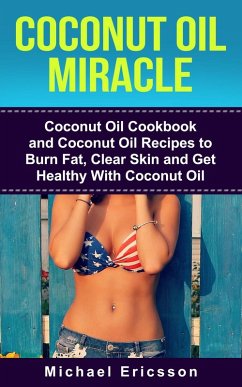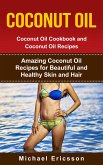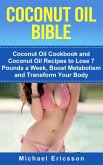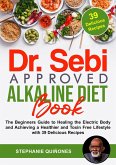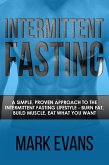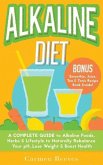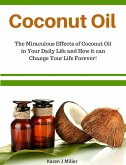This book contains proven steps and strategies on how to maximize the benefits of coconut oil.
There are a lot of so-called "miracle products" out there nowadays, but very rarely do these actually live up to expectations. Coconut oil is one of those very rare products. The coconut can provide a lot of the nutrients our bodies need. The oil coming from the fruit is packed with these essential nutrients that benefit us in so many ways.
We can use it as a healthier oil substitute for cooking, as a skin moisturizer, hair conditioner and household aid, among many others. Considering the coconut oil's versatility alone, it, being considered as a "miracle product", is not just lip-service. Here's a chance for you to find out more about the coconut oil miracle.
Here Is A Preview Of What You'll Learn... What is Coconut Oil? Coconut Oil for Fat Burning Recipes to Burn Fat Coconut Oil for Clear Skin Recipes for Great Skin Get Healthy with Coconut Oil Much, much more!
What is Coconut Oil? Coconut oil is extracted from the flesh of mature coconuts. It is edible and can last for up to six months without becoming rancid. A lot of South and Southeast Asian cuisines use coconut oil for cooking mostly because it is readily available and has a pleasant sweet smell and nutty flavor. There are several different ways to extract oil from coconuts. Different methods of extraction and the process that it undergoes afterward result in distinct types and qualities of oil. You may want to consider this when choosing the kind of coconut oil you want to use. Two main kinds of extracting processes are used to produce coconut oil. The dry extracting process requires the coconut flesh to be dried. This is typically done by exposing it to heat (usually drying the coconuts under the sun or near a heat source like fire). The dried coconut meat is called copra. The copra is then pressed to produce the coconut oil. Once the oil has been extracted, the flesh is either discarded or fed to animals as it is not fit for human consumption. The dry process can be a bit wasteful as the coconut's protein is not separated from the mash. This extraction process can also actually lose a bit of coconut oil.
The wet extracting process for coconut oil requires the use of raw or fresh coconuts. The protein in the coconut actually emulsifies the oil and the water, making it more problematic to separate. Separation is done by boiling the extracted liquid "coconut milk" for a long period of time.
Dieser Download kann aus rechtlichen Gründen nur mit Rechnungsadresse in A, B, CY, CZ, D, DK, EW, E, FIN, F, GR, H, IRL, I, LT, L, LR, M, NL, PL, P, R, S, SLO, SK ausgeliefert werden.

